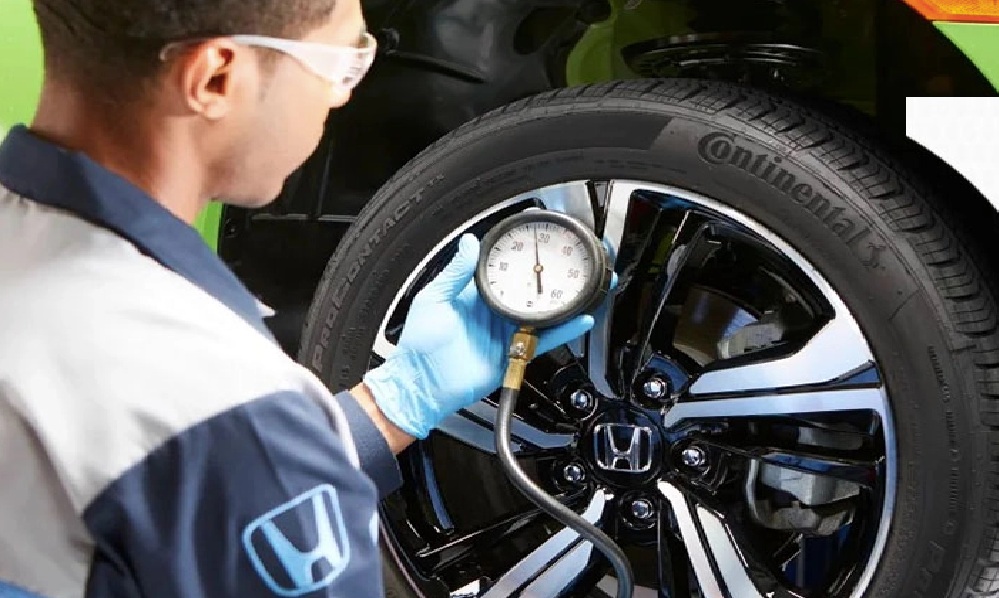Honda Oil Change Myths
As a Honda owner, you’ve likely encountered many myths and misconceptions surrounding the proper maintenance and service of your vehicle, particularly when it comes to oil changes. From the outdated 4,500-km rule to the perceived benefits of synthetic, it’s easy to get caught up in the sea of information (and misinformation) out there.
Let’s debunk the most common oil change myths and separate fact from fiction, empowering you to make informed decisions about the care and longevity of your Honda engine.

The Myth of the 4,500-km Oil Change
One of the most persistent myths in the automotive industry is that you should change your oil every 4,500 kilometrers. While this may have been true decades ago, modern engines and formulations have evolved significantly, rendering this rule largely obsolete.
Honda’s Maintenance Minder system, which is standard on most of their vehicles, takes the guesswork out of oil change intervals. This advanced system monitors various factors, such as engine load, temperature, and driving conditions, to determine the optimal time for a change. In many cases, the Maintenance Minder may recommend an oil change service at intervals of 8,000 kilometers or more, depending on your driving habits.
By following the Maintenance Minder’s recommendations, you can ensure that your Honda engine receives the proper care without wasting resources or money on unnecessary visits to the mechanic.
Misconceptions about Synthetic Oil for Honda Engines
Another common myth surrounding oil changes is the belief that synthetic is always the best choice for your vehicle. While synthetic can offer superior performance and protection in some cases, it’s not always necessary for Honda engines.
When used according to the manufacturer’s recommendations, Honda-approved conventional oils can provide excellent lubrication and protection for your engine. The key is to use the viscosity and grade specified in your owner’s manual, as engineers have carefully selected these recommendations to optimize the performance and longevity of your engine.
In some cases, switching to synthetic oil may provide additional benefits, such as improved fuel efficiency or better performance in extreme temperatures. However, it’s essential to consult your owner’s manual or a trusted technician before making the switch to ensure it’s the right choice.
The Truth about Honda Oil Filters and Their Effectiveness
Another common misconception about oil changes is the belief that Honda-branded filters are inherently superior to aftermarket options. While Honda produces high-quality filters, the truth is that many aftermarket filters can provide equally effective filtration if they meet or exceed the specifications set forth by the company.
The most important factor in filters is ensuring you use the correct size and type for your Honda model. Consulting your owner’s manual or speaking with a technician can help you identify the appropriate filter for your vehicle, regardless of the brand.
The Accuracy of the Honda Oil Life Indicator
Many owners are also unsure about the reliability of the oil life indicator displayed on their vehicle’s dashboard. This system, part of the Maintenance Minder, provides a real-time assessment of the remaining life based on various factors.
While the oil life indicator is generally accurate, it’s important to understand that it’s not a one-size-fits-all solution. Factors such as driving conditions, towing, and extreme temperatures can all impact the rate at which your oil degrades. As such, it’s always a good idea to keep an eye on your level and condition and to consult your owner’s manual or a Honda service technician if you have any concerns.
Myths about Oil Changes at Honda Dealerships
One of the most persistent myths surrounding oil changes is the belief that you must have a vehicle service at a Honda dealership to maintain your warranty, which is simply not true. As long as you use approved parts and follow the maintenance schedule outlined in your owner’s manual, you can have your changes performed at any reputable repair facility, including independent mechanics or even do-it-yourself.
That being said, there are many benefits to having your vehicle serviced at a dealership, such as using genuine Honda parts, the expertise of Honda-trained technicians, and the peace of mind that comes with a documented service history.
Extending the Longevity of Your Honda Engine Oil
While it’s important to follow the Maintenance Minder’s recommendations for oil changes, there are a few steps you can take to help extend the longevity of it:
- Avoid Excessive Idling: Prolonged idling can cause your oil to break down more quickly, so try to minimize the time your engine idles.
- Maintain Proper Oil Levels: Regularly check your level and top it off to ensure your engine is properly lubricated.
- Consider High-Mileage Oil: If your vehicle has accumulated a significant number of kilometers, switching to a high-mileage formulation can help maintain optimal engine performance.
By following these simple tips, you can help maximize the lifespan of your engine oil and ensure that your vehicle continues to perform at its best.
Clearing Up Misconceptions about Viscosity for Honda Engines
Another common myth surrounding Honda oil changes is the belief that you must use a specific viscosity, regardless of your driving conditions or climate. In reality, Honda engines work with a range of viscosities, as outlined in your owner’s manual.
The oil viscosity recommended by Honda is carefully selected to provide the optimal balance of fuel efficiency, engine protection, and cold-weather performance. However, in some cases, you may need to adjust your viscosity to suit your driving conditions or climate better.
For example, if you live in a region with extremely cold temperatures, you may need to switch to a lower viscosity to ensure proper lubrication and engine startup. Conversely, a higher viscosity may be more appropriate if you frequently tow heavy loads or operate your vehicle in hot, desert-like conditions.
By consulting your owner’s manual and speaking with a service technician, you can determine the best viscosity for your specific driving needs and ensure that your engine receives the proper lubrication and protection.
The Effectiveness of Oil Additives for Engines
Finally, let’s address the myth surrounding the use of additives in engines. While there are a variety of additives available on the market, the truth is that they are generally not necessary for Honda vehicles.
Honda engines perform optimally with the oil specified in your owner’s manual, and the addition of aftermarket additives can actually do more harm than good. These additives may interfere with the delicate balance of the engine’s lubrication system or even cause damage to sensitive components.
Take the Guess Work Out of Oil Changes
If you have concerns about the condition of your engine, it’s best to consult a service technician or follow the recommendations of the Maintenance Minder system. In most cases, regular changes and the use of Honda-approved oils and filters will be sufficient to maintain the health and longevity of your engine.
By understanding the facts about oil changes and debunking common myths, you can take the guesswork out of maintaining your vehicle and ensure that it continues to perform at its best for years to come. If you have any further questions or concerns about your Honda’s service, care and maintenance, consult your owner’s manual or speak with a trusted Honda service technician.




